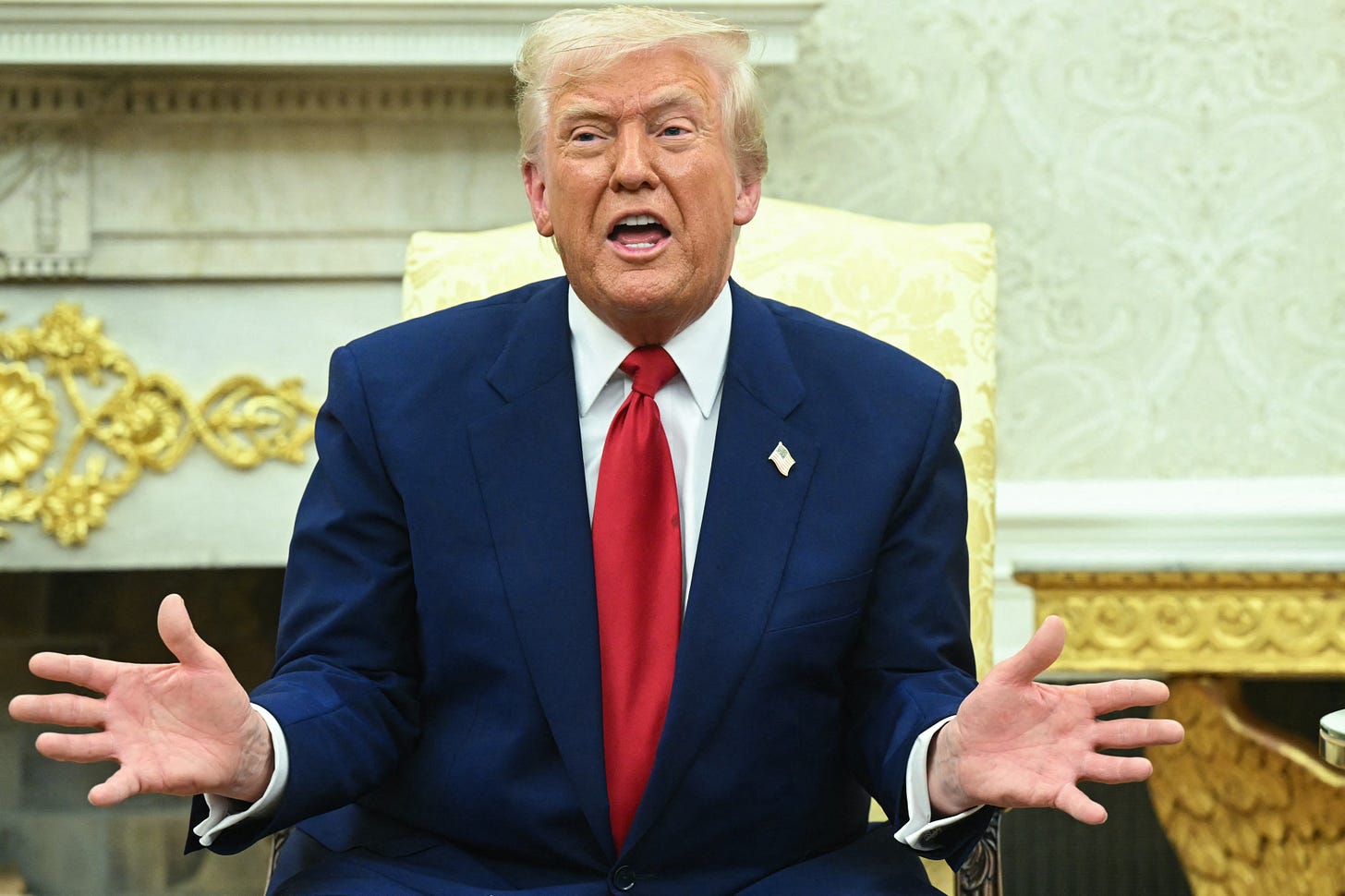Can Trump Secure a New Iran Deal Before Israel and the Neocons Start a New War?
There's an opportunity for a ‘better deal’ with Iran. The alternative is the collapse of talks and a drift toward a catastrophic war.

President Donald Trump wrote on TruthSocial on Wednesday that he asked Russia’s Vladimir Putin to help secure a nuclear deal with Iran, while also accusing Tehran of “slow-walking” the negotiations. In reality, the diplomatic impasse is not due to Iranian delay tactics but to Trump’s renewed embrace of Mike Pompeo and John Bolton’s zero enrichment demand. While enlisting Russia could be helpful – Moscow played a constructive role in brokering the original Iran deal, known as the Joint Comprehensive Plan of Action (JCPOA) – no country can overcome the deadlock created by the zero enrichment fantasy. Only abandoning that demand can break the stalemate.
Trump has been down this road before. During his first term, he sought a new deal with Iran but, following the advice of Bolton, his then-national security adviser, and Pompeo, his secretary of state, he withdrew from the JCPOA instead of negotiating from within it. He imposed sweeping “maximum pressure” sanctions, aiming to achieve two goals at once: dismantle President Barack Obama’s legacy and coerce Iran into begging for a new agreement. Neither objective was achieved.
As many predicted, the opposite of what Bolton and Pompeo promised came to pass: Iran expanded its nuclear program, scaled back compliance with the JCPOA, increased enrichment levels, and restricted access to its nuclear sites. Far from paving the way for new negotiations, their approach brought the US and Iran to the brink of war – twice – during Trump’s first term. But that was no miscalculation. Bolton and Pompeo weren’t seeking a new deal; their goal was war with Iran.
Trump appeared to have learned from that failure. Throughout his 2024 campaign, he avoided talk of zero enrichment and instead drew a single red line: Iran must not obtain nuclear weapons. He repeatedly emphasized his desire for Iran to become a “successful and prosperous nation” – a message Tehran took as a signal he was willing to offer deeper sanctions relief than Obama or Joe Biden. This helped persuade Iran to engage directly with Trump, despite deep anger over his withdrawal from the JCPOA, the maximum pressure campaign, and the US assassination of Qassem Soleimani, Iran’s most powerful military figure.
In recent weeks, the ghosts of Pompeo and Bolton have returned to haunt Trump’s Iran policy. Accusations from allies of Israel in Washington that he is merely reviving “Obama’s deal” appear to have struck a nerve. Suddenly, the zero enrichment fantasy is back in Trump’s rhetoric – with predictable consequences: talks are stalling, and valuable time is slipping away.
To their credit, Trump’s advisers have explored more creative options.




